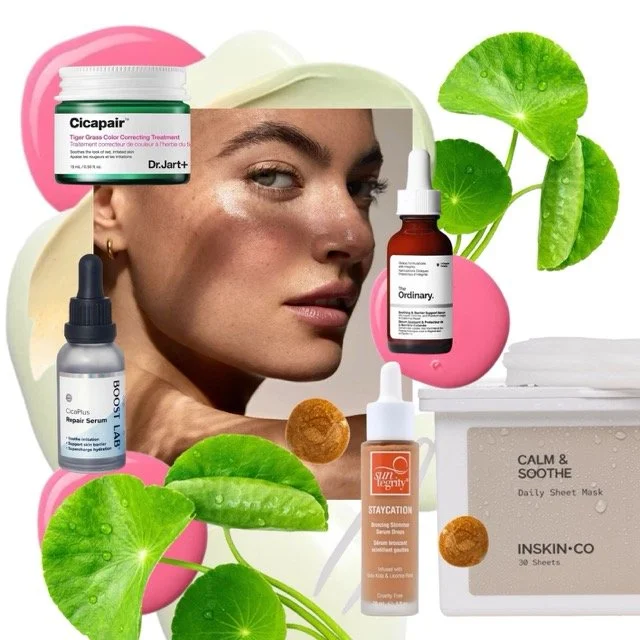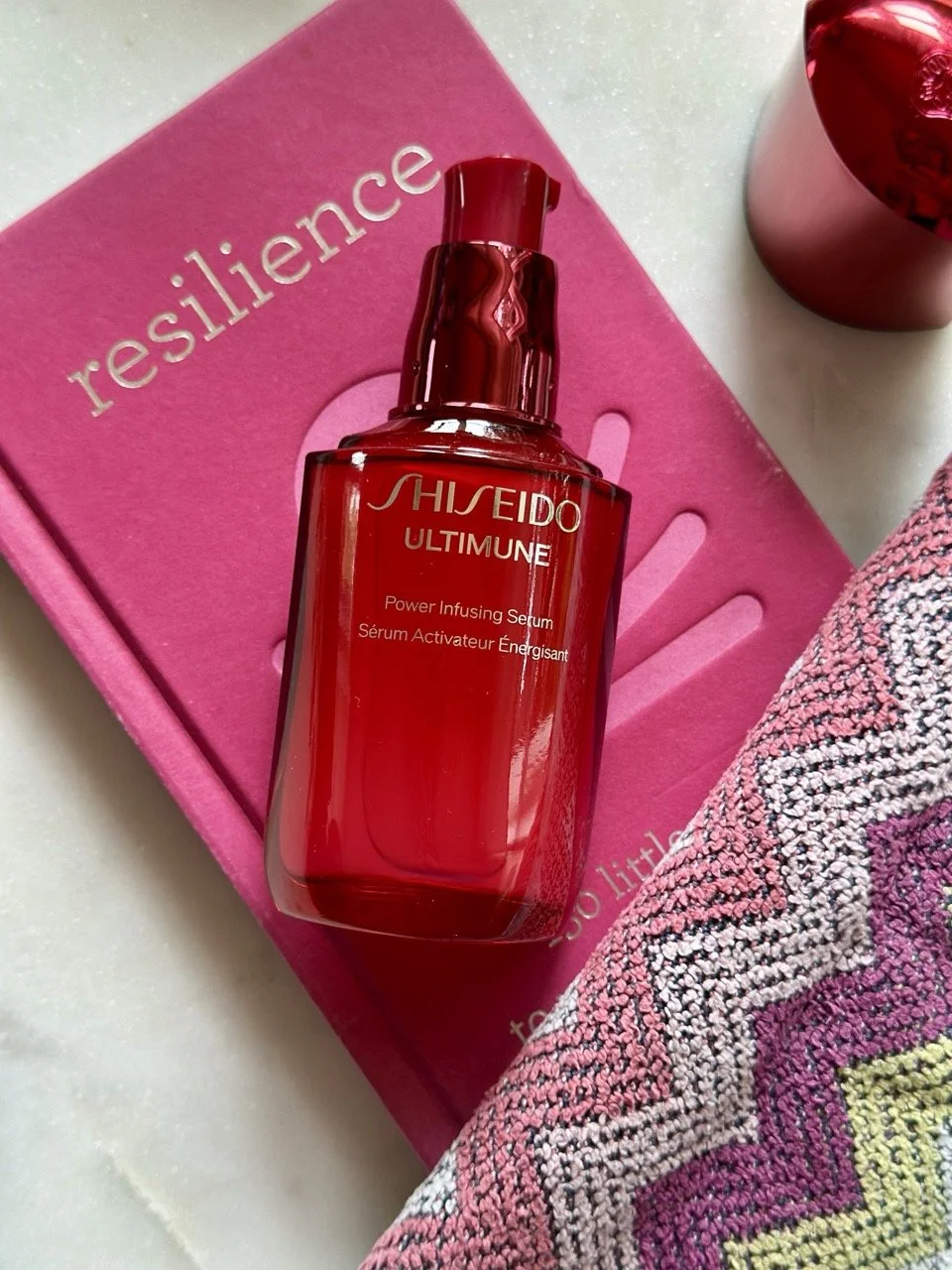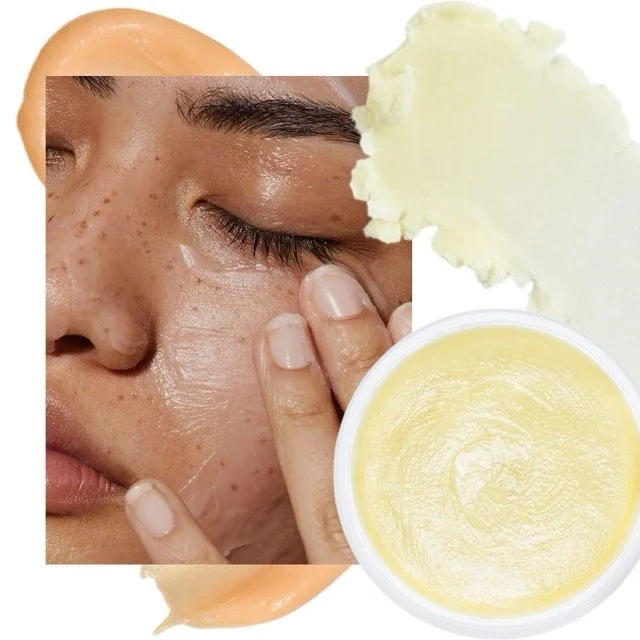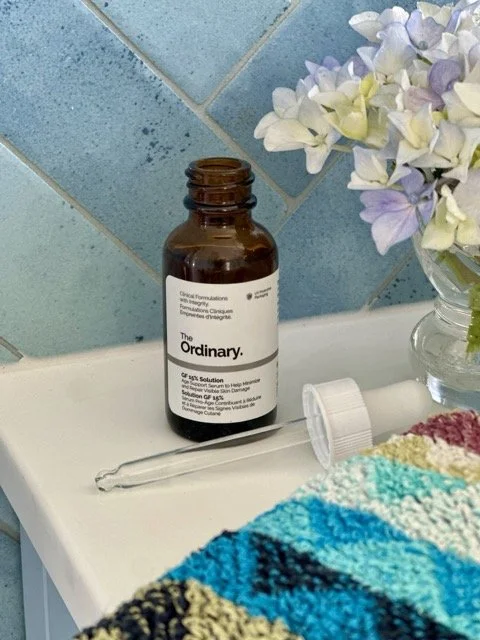Could a moisturiser shift your mood, or a body lotion boost your self-esteem? The latest trend that combines beauty and mental health could be the key to skin and hormone happiness. Trudi Brewer shares the future of beauty: neurocosmetics.
Image Instagram
Self-care rituals certainly improve mood, but is skincare no longer enough to offer results alone? A saturated beauty market wants to win beauty lovers over with products that make us feel something, transforming our skincare experience into happy hormones. In the same way, night cream offers ingredients that help with restful sleep; Tailor Restore Melatonin Night Balm is an excellent example. Neurocosmetics is an emerging trend that plans to elevate beauty routines to create a feeling of satisfaction. Read on to learn more.
What are neurocosmetics?
The philosophy behind neuro cosmetics is rooted in the idea that the "brain and skin are intrinsically linked," and some brands are touting products "formulated to play off that connection," Allure said. Where traditional cosmetics and skin care products focus exclusively on the skin, neuro cosmetics look for pathways to trigger the nervous system to positively impact the skin and well-being. So, what are the active ingredients in neuro cosmetics? Any ingredient affecting the nerve receptor, like ingredients we smell (aka aromatherapy).
Topical products that claim to interact directly with the nervous system are gaining popularity with this trend. Stephanie Lee, founder of the neurocosmetic brand Selfmade, says, "Neurocosmetics are not new. You've likely used them in your routine for quite some time. If you enjoy the cooling sensation from menthol products or the feeling of heat to relieve aches and pains from capsaicin muscle rub creams, you've experienced neurocosmetics. Not to mention, aromatherapy uses scent to affect mood, and CBD (cannabidiol) products bind to cannabinoid receptors in the skin to reduce pain." However, they have become more relevant due to better technology and the current mental health concerns that natural ingredients can address.”
How Does Neuroscience work in skincare?
According to Lee, "The science underpinning the relationship (between the skin and the brain) is called psychodermatology. "A well-researched hybrid of psychiatry and dermatology studies shows your mind and emotions can influence your skin's health and appearance. Proving how you look affects your feelings and mood. Psychodermatology and our bodies tell us the real story: body function and performance correlate to our mental state. Lee thinks of the body as a home. "Just as a home can have a security system, so can our body through the brain and skin axis. Using a typical home security system as a metaphor, it also has three parts (messenger, signaler, and the regulator) that work together to protect the house and its contents." Lee adds, "The skin not only protects and senses but is an endocrine organ that produces and transforms hormones. For this to happen, those functions must operate. "To better understand how this works, here's a quick science lesson from Lee: "The network of fibres that live on the skin as the axons of sensory neurons, acting as an extension of the brain and spinal cord. The signaler, or the skin stress response system, is a neuroendocrine system that locally produces hormones involved with melanin, inflammatory markers, metabolism, and mood boosters. Lastly, the regulator is the dermal hippocampus-pituitary-adrenal axis, where the skin and brain conspire for coordinated and adaptive regulation of cortisol levels, immune function, metabolism, cardiovascular, emotional regulation, and skin barrier activity."
So, what are neuroactive ingredients?
Many fermented foods contain neuroactive ingredients that can affect our health and mood. One is gamma-aminobutyric acid (GABA), an amino acid that functions as a neurotransmitter for the central nervous system. Others include serotonin and melatonin. In cosmetics to combat stress (which significantly impacts the skin), ashwagandha (an adaptogen) and passion flowers help calm irritation and inflammation. Certain scents also have a neurological effect on the skin. This study found that valerian oil could decrease hypersensitivity and reduce inflammation in the skin. Spanish company Vytrus Biotech specialises in making active natural ingredients. Sensia Carota, from the flower of orange carrots, offers a feel-good factor that has soothing power on the body and the skin. Turmeria Zen, from turmeric root (one of the most studied plants in biomedicine), boosts hydration as an antioxidant and offers a DNA protection ingredient known as an anti-stress plant with molecules to improve your well-being through a mindfulness effect. Thanks to science and research, this won’t be the last post you read on the mind-skin connection. Neurocosmetics could make beauty even more holistic, supporting our complexions and mental health.




















Update your beauty routine with these newbies.